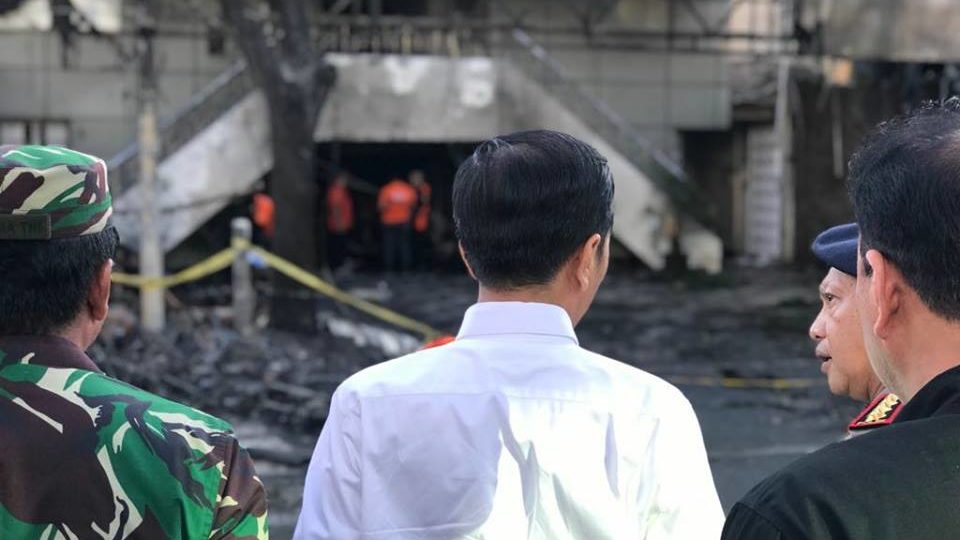The suicide bombings in Surabaya last April, which killed 28 people and injured another 50, horrified many Indonesians and quickly spurred the government to pass new anti-terrorism legislation that would give them vastly expanded powers, including the ability to better punish those involved in helping to carrying out terrorist acts.
Last week, those new laws were put to use against Syamsul Arifin aka Abu Umar — the man accused of leading the terror group behind the bombings — in the West Jakarta District Court, which found Syamsul guilty of supporting terrorism and sentenced him to 10 years in prison on Friday.
The sentence, which was less than the 15 years demanded by prosecutors, also requires Syamsul to pay IDR1.18 billion (US$83,000) in restitution to 17 of the bombing victims.
Syamsul was known as the East Java head of Jamaat Ansharut Daulah (JAD), a regional terror network with ties to Islamic State (IS) that has been behind several major terrorist attacks in Indonesia. He was arrested by the Detachment 88 (Densus 88) police counter-terrorism unit in Malang, East Java on May 14, the day after the first bombings.
In July, JAD was officially classified a “forbidden corporation” by the South Jakarta District Court due to its terrorist ties, the first time an organization had been labeled as such in Indonesia utilizing another revision to the Terrorism Law that allows for entities that were not previously registered with the government as official organizations to still be held responsible for the actions of its members.
Despite the government’s efforts to eradicate the group, it seems JAD’s extremist followers carry on — the alleged terrorists involved in last week’s devastating suicide bomb and related arrests in Sibolga, North Sumatra, were allegedly followers of JAD and IS as well.




